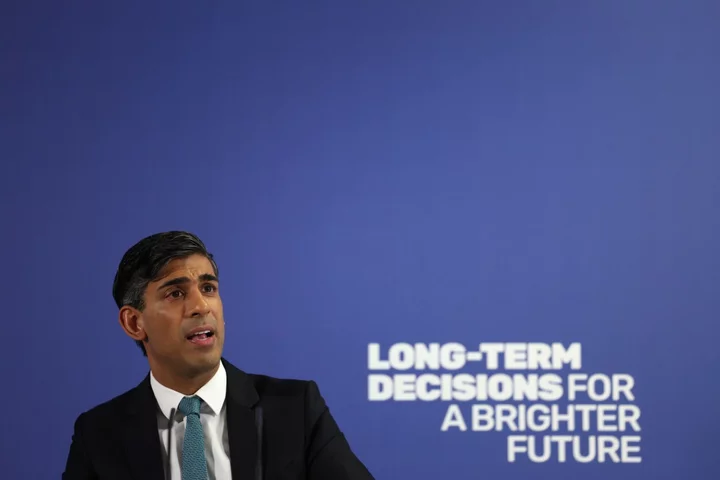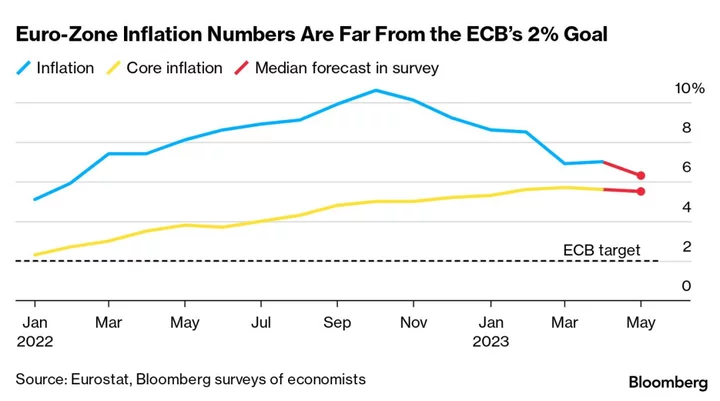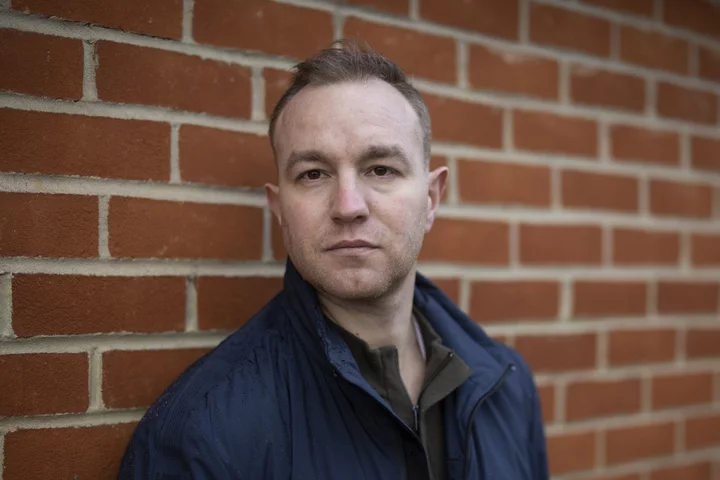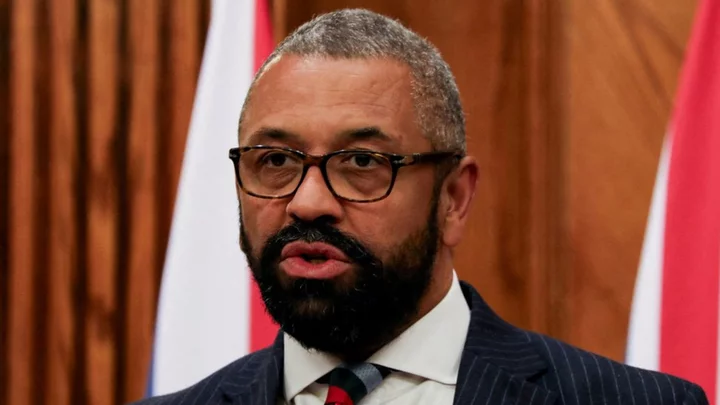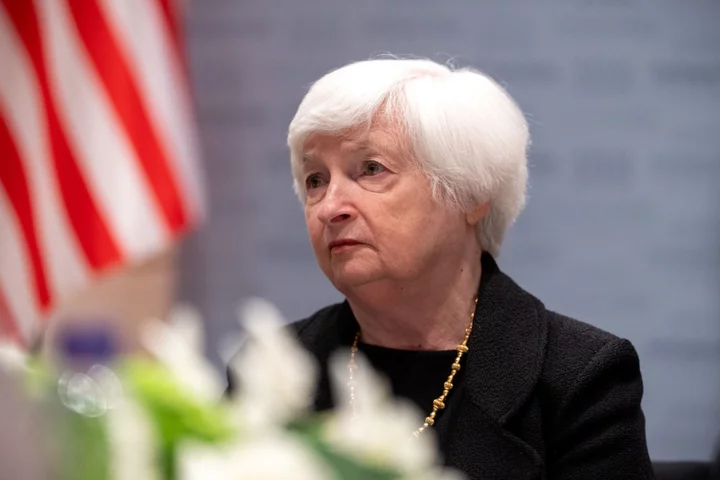Prime Minister Rishi Sunak said his UK government can begin to cut taxes after hitting a goal to halve inflation this year, suggesting economic plans to be unveiled this week by Chancellor of the Exchequer Jeremy Hunt will contain fiscal giveaways.
The British premier began the year making five promises to voters, foremost among them a goal to halve the rate of rising prices, which stood at 10.5% last December. Last week, official statistics showed inflation falling to 4.6% in October from 6.7% a month earlier.
Now that inflation is halved “we can begin the next phase and turn our attention to cutting tax,” Sunak said on Monday in a speech in north London. “We will do this in a serious, responsible way, based on fiscal rules to deliver sound money.”
Sunak’s promise that “we can and we will cut taxes” two days before Hunt is due to deliver his Autumn Statement laying out tax and spending changes is likely to go down well with his restless Conservative Party. Tory Members of Parliament have been ratcheting up the pressure on the two men to reduce the tax burden on the economy after overseeing its rise to the highest level since World War II. Sunak said reductions will be made “carefully” and “sustainably.”
Nevertheless, Hunt has little room to cut taxes, according to an analysis by Bloomberg Economics, which estimates the chancellor will have just £11 billion ($13.7 billion) to spare against his key fiscal rule, which requires debt to fall as a share of gross domestic product in the fifth year of the forecast. While that would be up from a “wafer-thin” £6.5 billion in March, it’s still low by historic standards.
Sunak attacked spending £28 billion of green plans outlined by the opposition Labour Party, which has enjoyed a double-digit polling lead throughout his tenure. He compared the potential effect with the market chaos unleashed by his Tory predecessor Liz Truss’s huge program of unfunded tax cuts.
“Blowing tens of billions of pounds on unfunded spending is just as dangerous as tens of billions on unfunded tax cuts,” Sunak said, without naming Truss or her chancellor, Kwasi Kwarteng. “There’s no way if you’re borrowing £28 billion more that you can cut people’s taxes.”
The government believes it can turn its attention to growth-enhancing tax cuts, such as business reforms, as part of a broader long-term strategy that draws a clear line with what the Tories describe as the interventionism of Labour’s “securonomics” economic plan.
There has been mounting speculation about cuts to inheritance tax and national insurance as a way recovering some of the Tories’ 20 point polling deficit to Labour before the election expected next year.
In his speech, Sunak stressed the Tories’ economic differences with Labour. He said the choice is between state-directed approach to growth, and using the private sector.
“The Labour party are so wrong to think the economy is about government,” he said. “I’m not saying the government has no role. When a crisis hits, governments must intervene, just as we did with furlough. But our opponents are profoundly wrong. You can’t permanently have bigger government. The bar to intervene in people’s lives should be high.”
Sunak said the Tories will take five long-term decisions to build the economy:
- Reducing debt
- Cutting tax and rewarding hard work by reforming welfare
- Building domestic sustainable energy
- Backing British business
- Delivering working class education
(Updates with further Sunak comment starting in fourth paragraph.)

